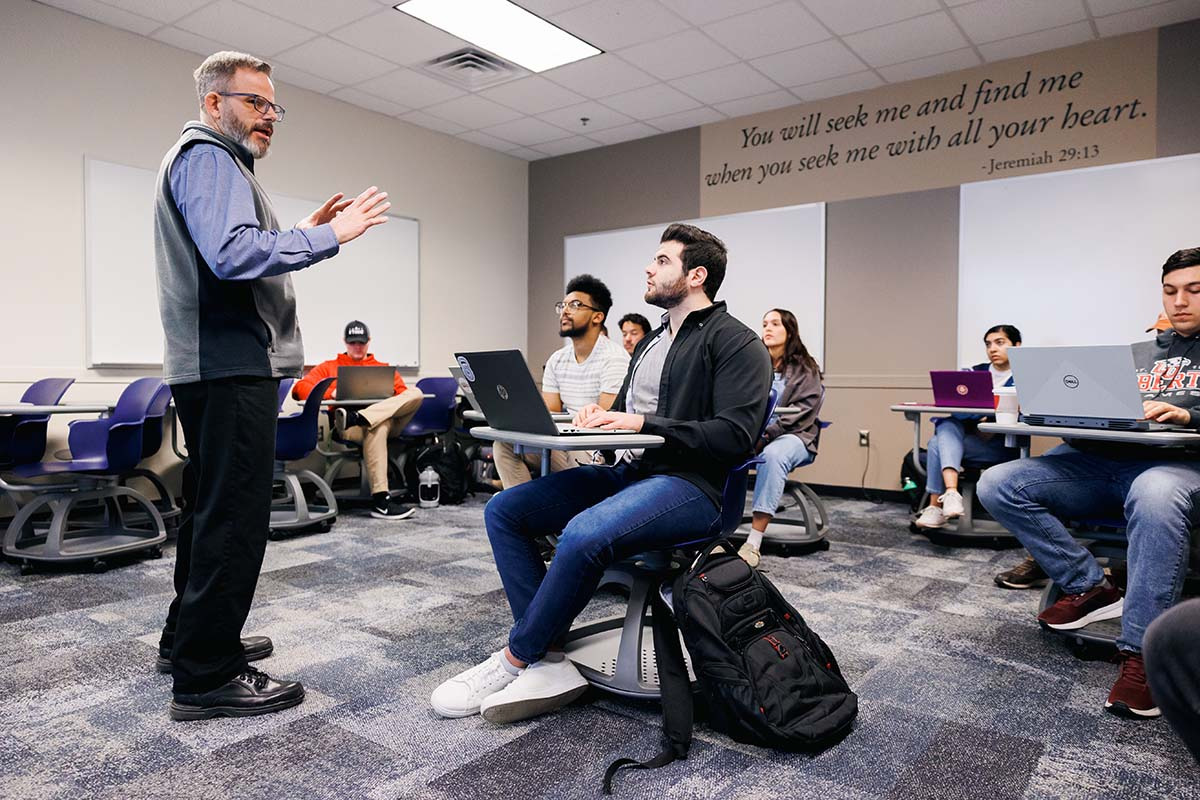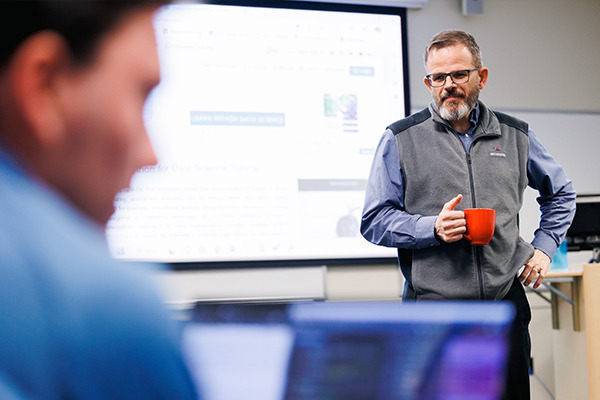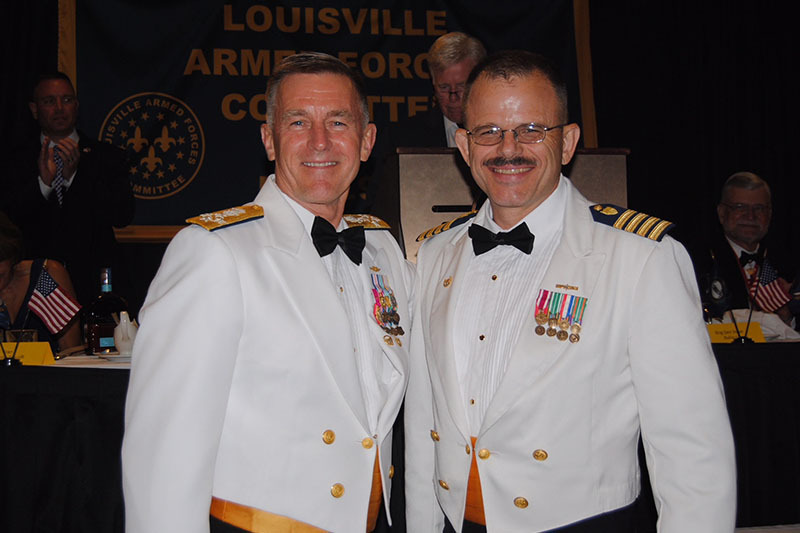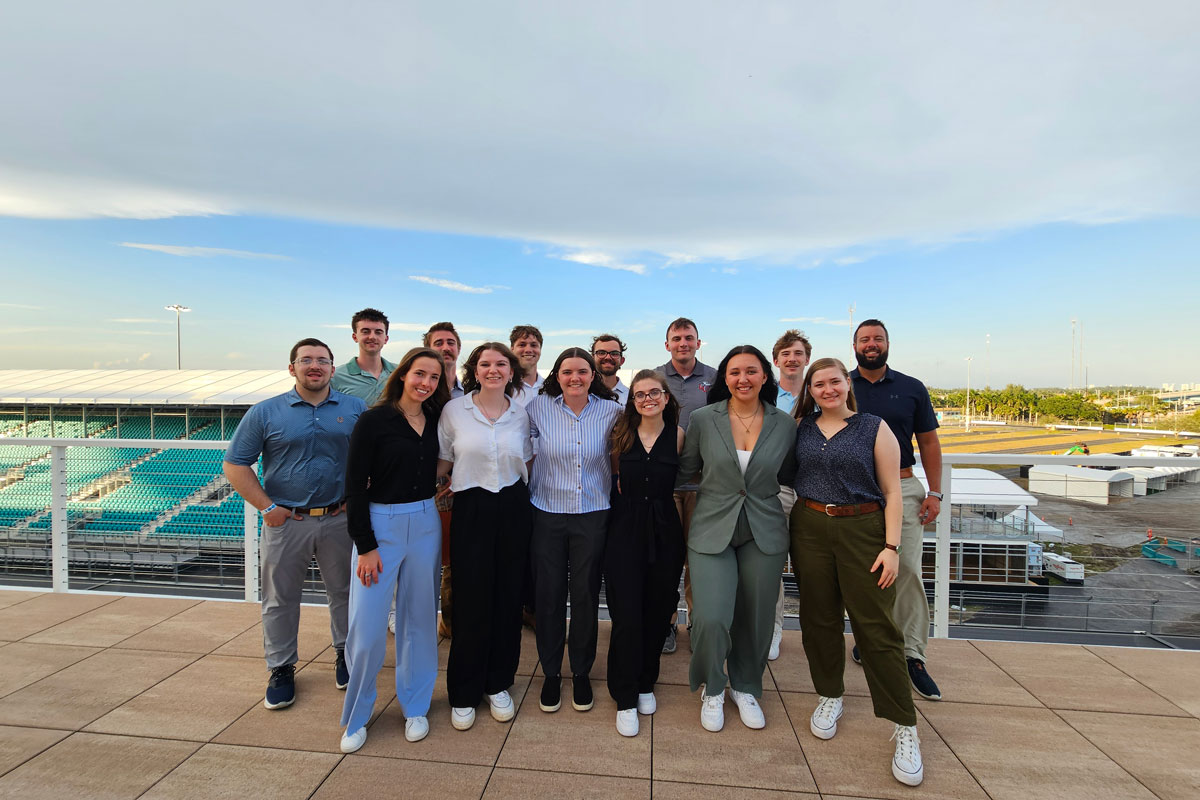Search News Archives
Filter News Articles
Additional Navigation
Engineering professor draws upon Coast Guard experience in classroom
March 2, 2023 : By Ted Allen - Office of Communications & Public Engagement

Following a career as a U.S. Coast Guard officer, Michael Zamperini transitioned to data analytics with Liberty University and was most recently hired as a professor in the School of Engineering’s industrial and systems engineering (ISE) department.
Zamperini earned his B.S. in Marine Science at the Coast Guard Academy in New London, Conn. He later completed his M.S. in Industrial Engineering and Operations Research at Penn State University before returning to the Academy to teach mathematics and operations research courses.

“I sensed the Lord leading me into a new career, coming full circle back to teaching after working in the industry,” said Zamperini, who previously served as director of database management in the Office of Institutional Effectiveness and Research. “When you’re teaching, it is best to have experience that you can bring into the classroom, then when you go back out into the workplace, you have fresh knowledge from the classroom, so it kind of feeds off each other. I very much enjoy working at Liberty and the ability to have my faith be central to everything we are doing, relating everything back to God and the Bible.”
During his 20 years of service in the Coast Guard, Zamperini spent two years in Puerto Rico, where his main objective was to intercept drug smugglers from Central America.
“Every night, we were putting out boats and planes to try to stop the smugglers and, using data analytics, to figure out where they would be to intercept them and to optimize what we were doing with our assets,” Zamperini said. “They would come mainly from the south but would come up from the east through the Virgin Islands or Dominican Republic and loop up around from the north to throw us off. It was a continual cat and mouse game.”
He was stationed in Portland, Ore., and up and down the East Coast, including New York City on Sept. 11, 2001, when he helped oversee the evacuation of hundreds of thousands of people fleeing from lower Manhattan in the aftermath of the 9/11 terrorist attacks that destroyed the World Trade Center.
“When the towers came down, my wife, Renee, was working right across the street at Lehman Brothers,” Zamperini said, noting that she was three months pregnant with their oldest of four daughters, Rachel, now a junior pre-med student at Liberty. “She felt the building shake when the first plane hit and was out on the street when the second one hit. Meanwhile, I was managing a fleet of boats that ferried people out of New York City all that day and late into the night. I didn’t see my wife and had to entrust her to the Lord as all of the phones were down.”
Zamperini teaches data analytics, computer simulation, and engineering economics classes, while also pursuing his Ph.D. in engineering at Liberty.
He said there is a shortage of graduates from STEM (Science, Technology, Engineering, and Mathematics) major fields throughout the United States, and Liberty’s programs are expanding to help to meet the demand.

The School of Engineering has 1,294 students enrolled, including 689 studying residentially. Industrial systems engineering has the fewest students of the five majors that include mechanical, civil, computer, and electrical, but it is growing steadily.
“Industrial engineering has a lot of different fields to it, and I am involved with optimization problems and computer simulation,” Zamperini said. “If I have a complex problem that’s too hard to figure out, I can build a computer simulation to study the problem and test things that might be hard to do in the real world. That is what I did my thesis on, and I am excited to be able to continue working in that now and to be able to teach it.”
Dr. Diana Schwerha, chair of the computer and electrical engineering departments, said Zamperini is using his background to invest into his students.
“He is bringing this capacity, this expertise to the department that will really bless the students,” she said. “We have a robust program, and we are training our students to go out and share the Gospel. Industrial and systems engineering graduates may go into manufacturing, health care, education, government. … We take our skillset and we can apply it in a lot of different environments.”


